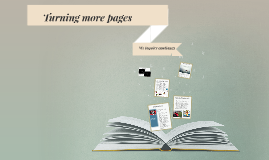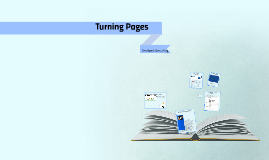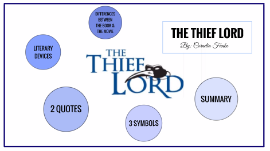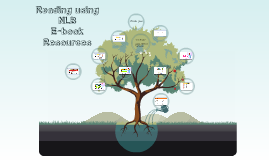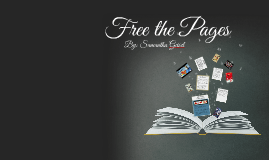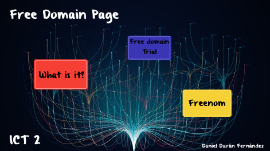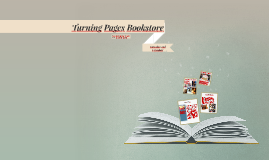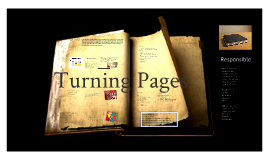Free Choice Book Club PowerPoint
Transcript: THE THIEF LORD By: Cornelia Funke SUMMARY SUMMARY After losing their mother, two brothers, Prosper and Bo, run away to Venice, Italy, the city that their late mother had told them was full of magic and wonders. Prosper and Bo are brought in by a group of lost children, just like them. All of the children look up to their charming leader, the Thief Lord, who is not much older than them but has a completely different sense of mystery surrounding him. Prosper and Bo undergo many challenges along their way, as they maneuver through the city of Venice that holds many secrets yet to be discovered. There are many reasons why I chose to read The Thief Lord: The novel's summary intrigued me. The story has an interesting plot and setting (Venice). I had read another novel by Cornelia Funke in the past titled Inkheart, and I thoroughly enjoyed it. I usually like reading fantasy books with a realistic setting. The cover art was appealing. Why I Chose to Read This Book Why I Chose to Read This Book Primary Audience I think that Cornelia Funke wrote The Thief Lord primarily for children and young adults. Today, it is considered a children's novel by many, but people of all ages continue to read it. Primary Audience One of the main characters of The Thief Lord is Prosper, who has a younger brother named Boniface, or Bo. Prosper is very protective of his younger brother and would do anything to keep him safe. He tends to worry excessively about the smallest things, but he is quite mature for his age. Even though he lives on the streets, Prosper usually doesn't steal from or pickpocket anyone, and forbids Bo from even attempting to steal. Throughout the novel, Prosper faces many internal conflicts such as his guilt for running away from his aunt with Bo in the middle of the night. He wishes that Bo could live a normal life in a normal home, but if it had to be with his Aunt Esther, he would rather live in the streets of Venice. Prosper also feels responsible for everything his brother does, which leads to him being in a constant state of worry and anxiety. He is motivated to prove to his aunt that he can survive on his own with Bo, and that Bo doesn't need anyone but his older brother. Character Analysis Character Analysis 3 SYMBOLS 3 SYMBOLS Symbol: Lion The lion represents Prosper's strength and courage throughout the novel. Symbol: Angel Wings The angel wings symbolize how Prosper used his deceased mother's words to guide himself and Bo to Venice. Symbol: Linked Chain The linked chain represents how Prosper's and Bo's fates will always be linked with the friends they made in Venice. 2 QUOTES 2 QUOTES “Children are caterpillars and adults are butterflies. No butterfly ever remembers what it felt like being a caterpillar” (Funke, 53). Riccio responds with this quote when he is asked by Prosper if he wishes he was grown-up. This quote relates to the theme in which Riccio says that he would rather be a child than an adult, whereas Prosper, who asked the question, wishes to be an adult. Prosper thinks that, as an adult, he is "free" to do anything he wants, as opposed to the Conte and Contessa, two middle-aged adults who come in later in the story, who desire for the innocence and freedom they had in their lost youth. "'Wouldn't it be great if someone really nice was after you like that?' Riccio pushed his tongue into his tooth-gap. 'Some nice filthy-rich uncle or grandfather, just like in the stories Hornet reads to us'" (Funke, 147). 2 QUOTES 2 QUOTES Riccio is part of the group of children that took in Prosper and Bo. He was brought up in an orphanage, never knowing who his biological parents were. In this quote, it is shown that Riccio wants to have a family and live in a house of riches, but he has never had the opportunity to live in a true home. "'I hope you brought some decent goods this time,' the man murmured disdainfully, but the boys noticed how he stared at the bag in Prosper's hands, like a hungry cat eyeing up a fat, juicy mouse" (Funke 40). LITERARY DEVICES LITERARY DEVICES This is an example of a simile, a direct comparison between two things using "like" or "as." This simile expresses Barbarossa's cunning personality, as he talks to the children pretending he has no interest in them while his eyes are glued to what is in Prosper's hand. There are a couple major differences between the novel and the movie adaptation of The Thief Lord. The most evident difference is that Prosper and Bo had met Scipio through Hornet in the novel, but in the movie, Scipio had caught Prosper shoplifting medicine for Bo. Another distinct difference is Bo's age where he is stated to be 5 in the novel, but says he is 6 years and 3 months old in the movie. Overall, I definitely prefer the book over the movie. The book captures more details and is quite enjoyable to read multiple times. DIFFERENCES BETWEEN THE BOOK & THE MOVIE DIFFERENCES BETWEEN THE BOOK & THE MOVIE






